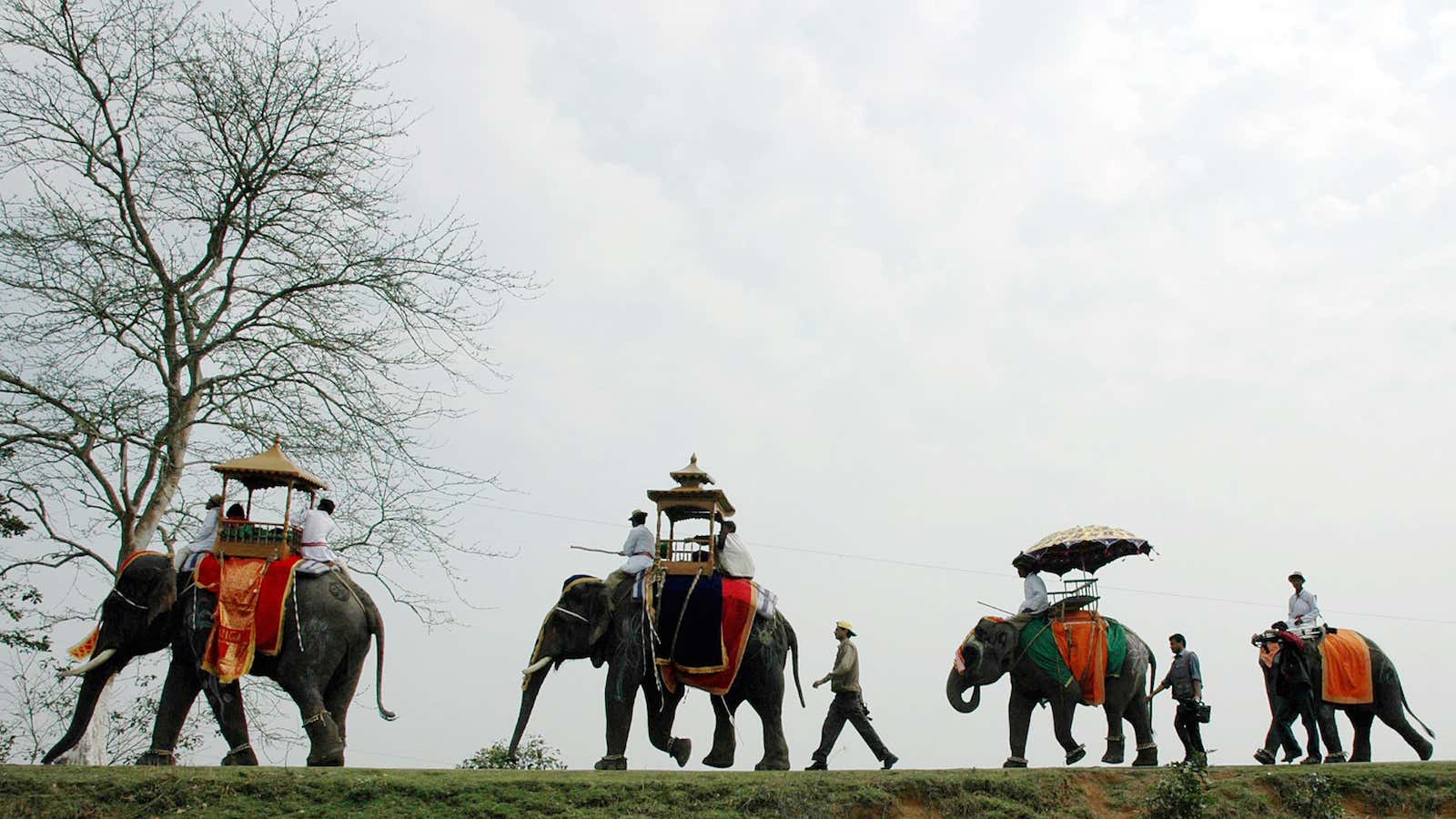I wasn’t conscious of being brown before moving to the United States. The truth is, I feel very Indian, very Assamese—not brown, because I never grew up considering myself brown. But after a year of living in the US, through many gatherings in which I was the only person of color, I have learned better.
Once, in a reading I attended in Minnesota, I was shocked to find an up-and-coming author describe a messy, filthy location in her story as a “third-world neighborhood.” I was instantly transported to the neighborhood I had grown up. People in my city call it an oasis for the greenery in it, for the cleanliness in an otherwise polluted and dirty city. It is true, India needs to clean its cities; but what kind of privilege gives an outsider the license to paint the entire “third world” in such broad strokes?
But I wasn’t annoyed that day.
In my second year, while returning from a night class, a young boy screamed “darky-darky” at me from his truck. I felt amused. I told myself, “how foolish that guy is.” When I told my Indian friends about it, they laughed, told me, “Welcome to America. Haha.”
I wasn’t really annoyed that day, either.
But I was annoyed and shaken when I realized that race is a bad word in a writing workshop. One day, workshop attendee had brought work-in-progress from a novel set in a neighborhood dominated by a racial/cultural minority, in a large American city. For this article’s sake, let’s say it was Devon Street, Chicago, and the people in it were Indians.
In the excerpt, the protagonist goes on and on about “Indians” as he walks around: Indians are cooking, Indian women are not looking at him because they are culturally trained not to look at men, Indian men are moving around, Indians are selling things, Indians are staring at him, Indians are talking, Indians are singing songs.
There was no description of the individuals engaged in these various activities. In fact, there were no individuals, in the sense of characters who might look different, act different, speak differently, weigh-differently, wear traditional or western clothes and otherwise stand out from the rest of the crowd. They were nothing, but “Indians.” But how was this possible?
I have lived all my life in India, but I could never look at a crowd in Manhattan, New York, and pick out who was Indian. Even if I went to an Indian-dominated location in the US, I couldn’t say who was an Indian and who was not; after all, Indians can look like Pakistanis and Pakistanis can look like Bangladeshis and Bangladeshis can look like Indians and Indians can look like Sri Lankans.
In that workshop text, the ostensible Indianness of a community was like the color of a background curtain, like a beautiful rug in a living room, that real people walk over. They were Indian because the author said they were Indian, like a color he had chosen. As such, the Indians were also dispensable—they could be replaced with any other racial or cultural minority to add a different “color” to the text.
The next day, near the school coffee shop, the writer of that text shouted at me that my critique of his background Indians as racist had been “knee-jerk.” He said that I had missed his whole point; that he was trying to bring in “more diversity” because America is multi-colored.
But trying to be inclusive produced only caricatures, not real characters.
Now I was annoyed; not with him but with a culture that believes social justice can be achieved through tokenism. This practice promotes a discourse in which no cultural or racial minority can be defined without modifiers: if you are brown, you might be “a black man,” or “a brown guy” but never ”a mean man” or “a cheerful guy.”
In the process, minorities remain just minorities, they never come across as greedy, quarrelsome, adorable, sexy, kind, unkind, generous, talkative, intelligent, bashful, argumentative, people.
Maybe we should ban these color-coding modifiers. If characters in literature can be written as people with characteristic traits, and not simply as members of one race or another, perhaps real people of color will one day be extended the same individuality.
